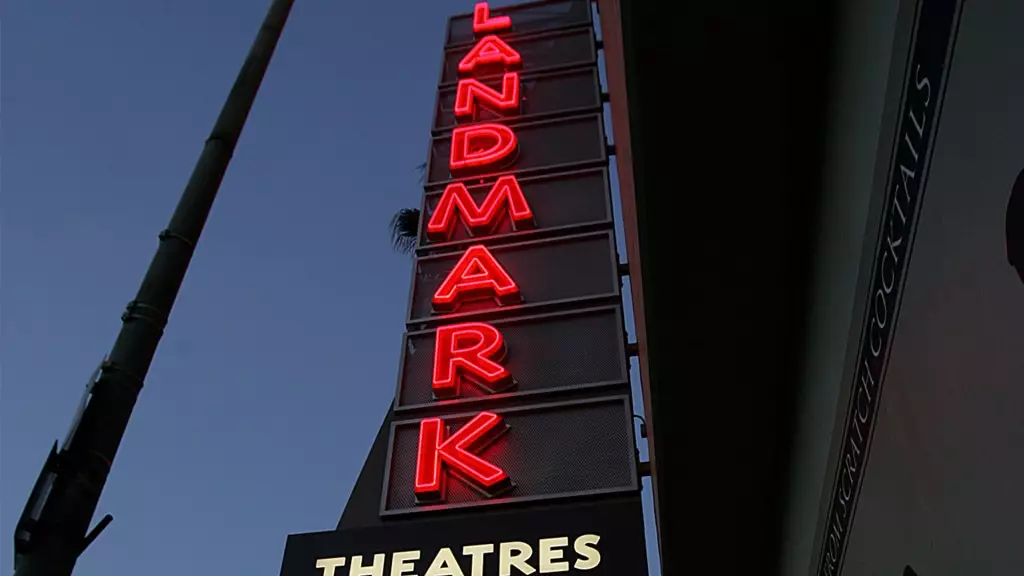The recent foreclosure auction involving Charles Cohen’s property holdings highlights the precarious state of independent cinema, particularly for arthouse theaters. The auction revealed a complex interplay of financial distress, strategic maneuvering by creditors, and the evolving landscape of film distribution and exhibition.
In a surprising turn of events, Creditor Fortress emerged as the sole bidder at a foreclosure auction for properties associated with Charles Cohen, offering $5 million for Curzon, a cherished arthouse theater chain in the U.K. The absence of competitive bids for Landmark Theatres, a notable property in Cohen’s portfolio, raises significant questions about its viability and future. Although Cohen’s group has insisted that Landmark is not in jeopardy, the lack of interest from potential buyers suggests otherwise. An auction that generates no bids cannot be interpreted as a sign of stability, prompting speculation about the operational and financial health of Landmark amidst a challenging market.
Charles Cohen’s acquisition of Landmark Theatres in late 2018 has not resonated well with the indie distribution community. Since taking the helm, there has been criticism directed at Cohen’s lack of investment in the chain, with detractors highlighting a shift towards wider releases and the closure of significant venues, such as the iconic Landmark LA. The COVID-19 pandemic only exacerbated financial difficulties already plaguing the exhibition industry. The picture painted here is one of neglect contrasted with industry expectations for nurturing indie cinemas that thrive on curated content and community engagement.
The foreclosure auction itself emerged from a larger legal dispute between Fortress and Cohen, stemming from a $534 million loan backed by several properties, including Landmark and Curzon. This scenario illustrates the aggressive moves creditors can make when a borrower defaults. A New York Supreme Court ruling set the stage for the auction, allowing Fortress to recover potential losses by listing Cohen’s holdings for sale. This situation underscores the sensitive dynamics between talent, investors, and exhibitors in the cinema ecosystem.
Moreover, Cohen’s financial predicament is further complicated by public disclosures indicating significant losses within his theater holdings—approximately $14 million in net losses for Landmark and around $8.5 million for Curzon. Such figures starkly contrast traditional expectations of profitability in cinema operations, suggesting a potential overvaluation of these properties and raising questions about Cohen’s management practices.
In foreclosure proceedings, a “credit bid” allows the lender to use the debt owed as collateral to bid on the property. Fortress made substantial credit bids totaling approximately $148.7 million for various other properties beyond the theaters. This strategy not only maximizes their potential recovery following the default but also allows them direct control over these assets should they win the auction. The legal framework surrounding such bids provides lenders significant leverage, as they can outmaneuver potential bidders due to their ownership of the defaulted loan.
Ultimately, the ramifications of this auction extend beyond Cohen and Fortress, touching on the broader landscape of arthouse cinemas. As independent distribution faces mounting pressures, especially with mainstream films dominating box offices, the fate of establishments like Curzon and Landmark is pivotal. The theater chains are seen as essential players in fostering diverse filmic narratives, yet their survival is threatened in an age where revenue and attendance patterns have shifted dramatically.
The unfolding drama of the foreclosure auction speaks volumes about the fragility of the indie film scene. Stakeholders must recognize the need for strategic reevaluation and possibly innovate new business models that adapt to the challenges of an ever-evolving industry. Without such recalibrations, we may witness the continued decline of important cultural institutions crucial for the sustenance of cinematic diversity.

